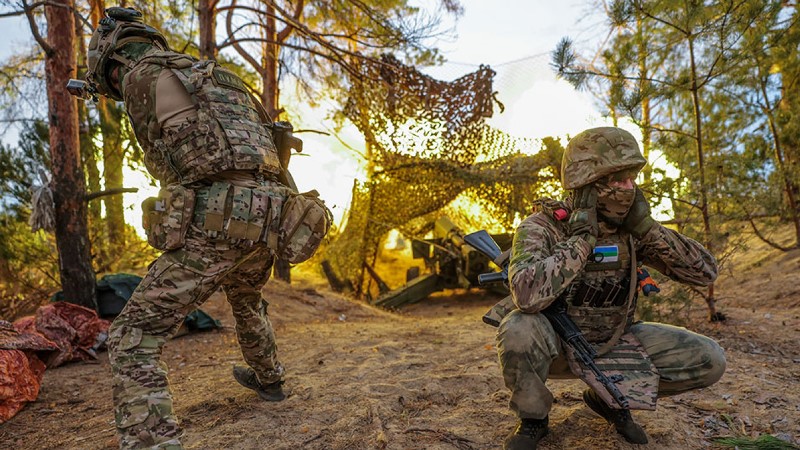U.S. Targets Russian Oil Industry Amid Rising War Tensions
MOSCOW/KYIV/WASHINGTON – The United States imposed sweeping sanctions on Russia’s largest oil producers on Wednesday, accusing Moscow of showing no genuine commitment to ending the war in Ukraine. The move came as Russia carried out a large-scale military drill involving its nuclear arsenal.
The new sanctions were announced just one day after plans for a high-profile summit between U.S. President Donald Trump and Russian President Vladimir Putin collapsed. Trump told reporters he had canceled the meeting, saying, “It didn’t feel right to me.”
According to the U.S. Treasury Department, the sanctions target Russia’s two biggest oil companies, Rosneft and Lukoil, in an effort to weaken the Kremlin’s ability to fund its ongoing war. The decision marked a sharp policy reversal from Washington, which has alternated between pressuring Moscow and pursuing diplomatic channels for peace in Ukraine. Just last week, Trump had indicated a willingness to hold off on further punitive measures.
“Now is the time to stop the killing and for an immediate ceasefire,” said U.S. Treasury Secretary Scott Bessent. Following his remarks, global oil prices rose by more than $2 per barrel, extending earlier gains.
Trump Cancels Putin Summit, Urges China’s Involvement
For months, President Trump has resisted pressure from Congress to impose energy sanctions, expressing hope that President Putin might agree to end hostilities. However, with no progress toward peace, Trump said the time had come for stronger action.
The U.S. President also reiterated that he was not yet ready to provide Ukraine with long-range Tomahawk missiles, which Kyiv has repeatedly requested. Speaking alongside NATO Secretary General Mark Rutte, Trump explained that Ukrainian forces would need at least six months of training to effectively operate such systems.
Ahead of his upcoming meeting with Chinese President Xi Jinping in South Korea, Trump urged Xi to use his influence with Putin to help bring the fighting to an end. The two leaders, Xi and Putin, have cultivated a strategic partnership in recent years.
In a show of military power, the Kremlin released footage of General Valery Gerasimov, Chief of the General Staff, reporting to Putin during the nuclear exercises. Russia confirmed that it launched missiles from land, sea, and air — including intercontinental ballistic weapons capable of striking targets in the United States.
The Russian Defense Ministry added that long-range Tu-22M3 bombers had flown over the Baltic Sea, accompanied by fighter jets from foreign — reportedly NATO — air forces. At pivotal moments during the war, Putin has frequently reminded the world of Russia’s nuclear capabilities as a warning to both Ukraine and Western nations. NATO, in response, has been conducting its own nuclear deterrence drills this month.
Europe Tightens Sanctions and Expands Military Support for Ukraine
The European Union approved its 19th package of sanctions against Russia on Wednesday, which includes a ban on Russian liquefied natural gas (LNG) imports, according to Denmark’s rotating EU presidency.
Meanwhile, The Wall Street Journal reported that Washington had eased restrictions on Ukraine’s use of some Western-supplied long-range missiles, enabling Kyiv to strike targets deeper inside Russian territory. President Trump, however, denied the claim on social media.
In a separate development, Sweden announced it had signed a letter of intent to supply Gripen fighter jets to Ukraine — part of Europe’s ongoing effort to strengthen Kyiv’s defenses after nearly four years of relentless warfare since Russia’s full-scale invasion. Ukrainian pilots have already undergone testing with the Gripen aircraft, known for its durability and cost-effectiveness compared to U.S.-made F-35s.
During a visit to the Swedish defense firm Saab (SAABb.ST), President Volodymyr Zelenskiy stated that Ukraine expects to receive and deploy the Gripens next year, with plans to acquire at least 100 aircraft.
Summit Delay Clouds Peace Efforts as Markets React
As heavy overnight missile exchanges between Russia and Ukraine continued, uncertainty grew around Washington’s diplomatic efforts to broker peace.
After months of stalled talks, Putin and Trump had unexpectedly agreed last week to hold a summit in Hungary. But following a phone call between top diplomats on Monday, the White House said the next day that Trump had no immediate plans to meet Putin. “I don’t want a wasted meeting,” Trump explained — a sentiment echoed by the Kremlin, which said Putin also preferred a meaningful dialogue over symbolic gestures.
U.S. Secretary of State Marco Rubio, speaking before departing Washington for the Middle East, said the United States still wished to maintain communication with Russia. Kremlin spokesperson Dmitry Peskov confirmed that preparations for the summit were ongoing, though no date had been set.
According to three sources cited by Reuters, Russia had reiterated its long-standing peace terms, which included Ukraine ceding full control of the southeastern Donbas region — effectively rejecting Trump’s suggestion that both sides freeze their positions along the current front lines. Russian Deputy Foreign Minister Sergei Ryabkov told state media RIA that he could not confirm Moscow had presented those terms as reported.
European defense stocks climbed following news of the summit delay, as investors anticipated further increases in military spending. Most European governments remain firmly supportive of Kyiv and have pledged to enhance their defense budgets.
EU leaders are scheduled to meet Thursday to discuss using frozen Russian assets to extend a $163 billion loan to Ukraine — a move Moscow has condemned as theft and vowed to retaliate against.














